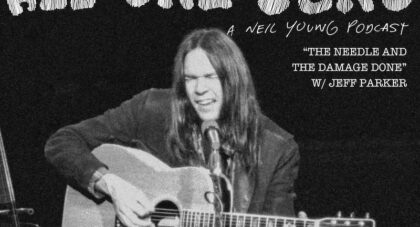It’s been more than 50 years since Neil got together with Crazy Horse, but still — nothin’ else matters. Young has just released the Rick Rubin-produced World Record, his third album with the band in as many years, and the heart of the group remains the same as it was back in ’69: drummer Ralph Molina and bassist Billy Talbot, who together have provided the elemental rhythmic bedrock that Neil has relied on for all these years. Aquarium Drunkard caught up with Talbot from his South Dakota home to get the lowdown on the Horse’s past, present and . . .
Only the good shit. Aquarium Drunkard is powered by its patrons. Keep the servers humming and help us continue doing it by pledging your support.
To continue reading, become a member or log in.


